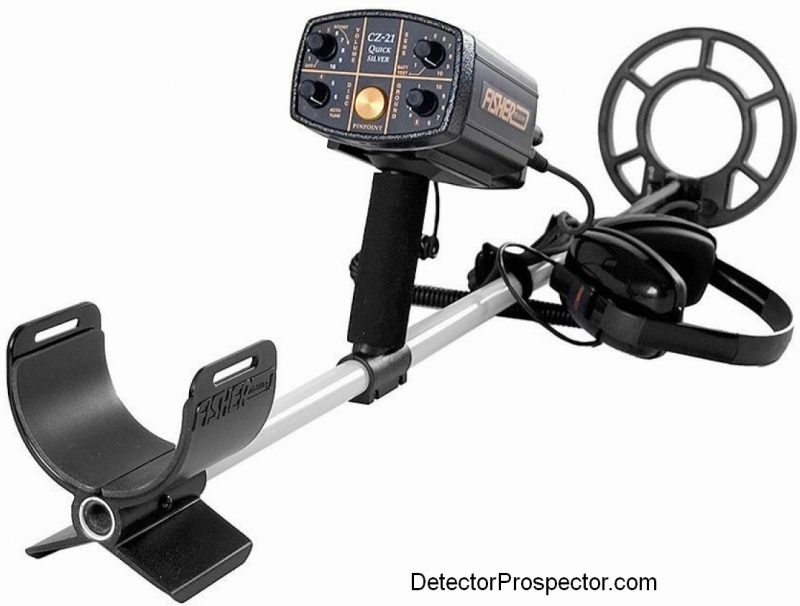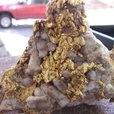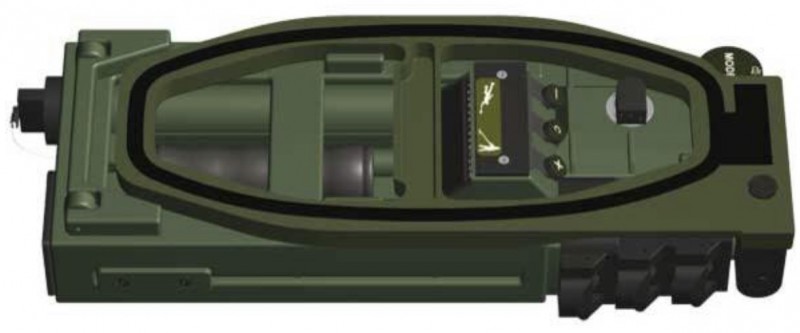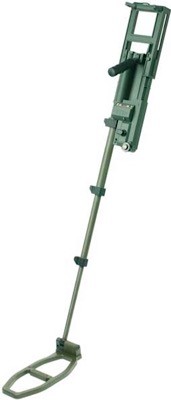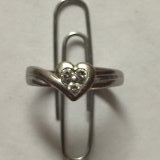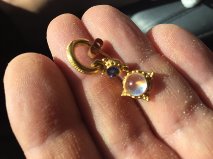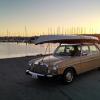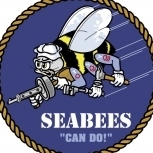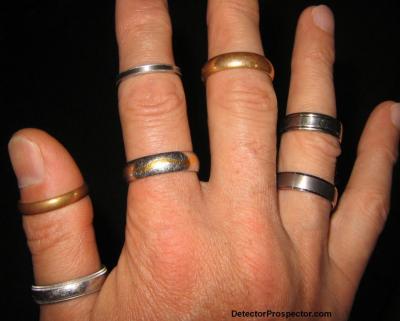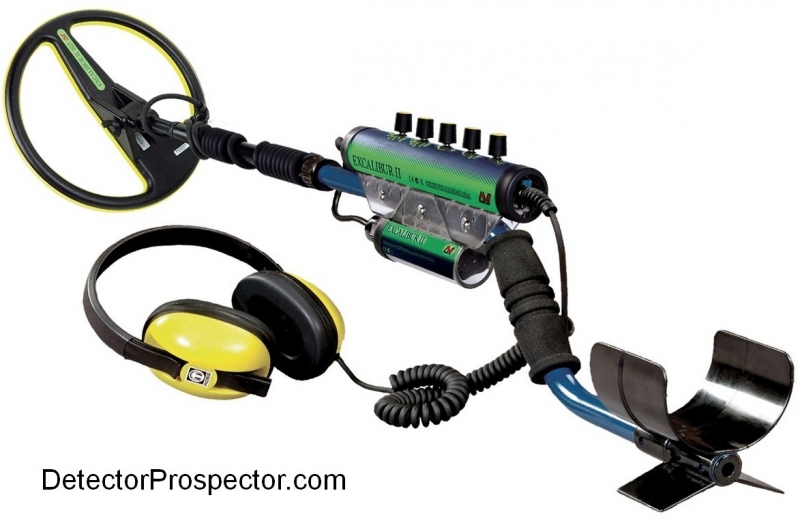Search the Community
Showing results for tags 'underwater detectors'.
-
So back in January on an ice-fishing adventure I hooked into a whale of a trout, so big that when my wife took her phone out to snap a picture, he shook the ice and down the hole went the new phone. We tried bobbing for it with a strong magnet and more holes, to no avail (although it did ring when I called it one more time before the battery died from the cold). Turns out there we several hundred pictures on the extra SD card that weren't backed up, so I'm going to take the plunge. That part of the lake is only about 12 ft deep (per fish and game's mapping), and we marked an approximate gps location. The water aint getting warmer, and my neighbor had a dry-suit to borrow. ATX is cleared to 10 feet, so with the 4 ft or so of extension i should be able to stay above. Luckily my lovely lady will be waiting above in the kayak, anchored down while I use a tether to slowly spiral outwards. Anybody done this before or got suggestions? (Yes, I've considered that the card might be shot anyways, just holding out for a little hope ?)
-
Hi all, I am looking for a simple and effective beach detector. If it wasn't too expensive that would be nice too. I used to use a Garrett Master Hunter so you know how long it's been since I hunted on a beach. I own two top of the line PI's but all the trappings required make it hard to just jump out of the car and detect. Any recommendations and why are appreciated. Feel free to move me if this is in the wrong forum Steve. Thank you
-
Back in January 2015 the Fisher CZ-21 internet price increased from $1160 to $1499, a massive price increase. Now it is being lowered back down to $1299. Some places still have it listed for $1499 so just a heads up. The Fisher CZ-21 is one of the best VLF underwater detectors on the market and can double as a good dry land detector. Waterproof to 250 feet, it is the real deal when it comes to diving and built like a tank. It is the only serious competition to the Minelab Excalibur with the main difference between the two the basic physical design and control layout. Performance is too close to call. I personally prefer the CZ-21 due to the east hip mount capability and more distinct tone scheme and true all metal mode. You can get it in 8" or 10.5" coil sizes but the coil is hardwired so be sure and get what you want. Big coils are better on the beach but if you are also thinking parks and such on dry land the 8" is the better option. The 8" is also better in thick ferrous junk.
-
this guy Flat Killed It on this Dive! Makes You think? Looks Like Fun! Worth Watching! Cheers from Idaho.Sorry if this was already posted before Dunno
-
-
Have a question..... I've taken up scuba diving and plan on doing some diving and detecting in Hawaii. I currently have a Whites Dual Field PI and just acquired a CTX 3030. Understanding that the 3030 is rated to only 10 feet and the DFPI hits on the lava, would an excal II be a wise investment? Can you notch out the lava with it? Any insight or advice would be greatly appreciated. Thank you and happy holidays! Rob Here's two recent beach finds... The ring is platinum (3.9gr) with diamonds and the earring is 22K (5.0gr) with sapphire and moonstone.
-
Hello Steve and other forum members. My name if Jeff and I am new to this forum. I have been a wet sand beach hunter here in So. Cal. for many years. I even make it out to the desert to do a little nugget shooting once in a while. Now....I know this topic has been rehashed several times, but a new mid range ($1000 -$1200) Water Proof PI is needed. I currently use a Whites Surf PI and Excal for most of my beach hunting, but would love to see a water proof TDI or something waterproof new from Fisher. When is this going to happen???? Great Forum Steve !!!!
-
Hi Guys New to the forum and metal detecting. Trying to make a decision between the 3 detectors mentioned above. I'm going to be doing most of my detecting on the Northwest beaches. I will also be doing some park hunting and then once a year prospecting in Arizona. I may try a little prospecting in the Northwest too if I find extra time. Initially thought the Excalibur was the way to go, but then after reading posts on several forums I'm starting to have doubts about its durability. I'm leaning towards the ATX at this point, but would like to get some final input on these 3 machines before I make a final decision. Any thoughts and input would be greatly appreciated.
- 25 replies
-
- garrett atx
- minelab ctx 3030
-
(and 1 more)
Tagged with:
-
The Fisher CZ-21 is one of the best VLF underwater detectors on the market and can double as a good dry land detector. Waterproof to 250 feet, it is the real deal when it comes to diving and built like a tank. It is the only serious competition to the Minelab Excalibur with the main difference between the two the basic physical design and control layout. Performance is too close to call. I personally prefer the CZ-21 due to the easy hip mount capability, more distinct tone scheme, and true all metal mode. You can get it in 8" or 10.5" coil sizes but the coil is hardwired so be sure and get what you want. Big coils are better on the beach but if you are also thinking parks and such on dry land the 8" is the better option. There is a huge price increase coming that will put what you see it currently for sale at as not too far over the new dealer cost! I literally almost just bought one myself just now but veered away before hitting the buy button because - well, you know it - I have too many detectors already anyway. Still, it is almost an investment at this price as used prices are going to take a big jump also. Anyway, just a head's up for forum members in case anyone was on the fence about the CZ-21.
-
Hi Steve I posted on findmall this same topic and then i found your site and reviews on nugget machines ....which were very good ...but i was wondering which unit would be the best ...for what i want to do I have land hunted for 40 years and in the ocean with a pi unit aqua pulse 1b ...but i have found some nugget areas here ,,,so ive been told ,,,,here in the DR and would like to try my hand a that ,,since i spend my winters here .....no gold where i live in the states (MO).... I have a explorer se and x-teera 70 ,,,,but would like a water proof unit for nugget hunting in the streams ,,and banks Any ideas ? I had a infium ,but didnt care for the 2 tone thing,,,,and i used an ace 350 but thought the response time from target to tone was slow...are the garrets atx and at gold like this ? Do any of these units you recomend have multi tone and resonalbe response time ? simalar to the SE, which just love that unit .... Thanks don
- 2 replies
-
- minelab ctx 3030
- garrett at
-
(and 2 more)
Tagged with:
-
In my "Day Job" I'm fortunate to travel throughout the U.S. and get to the beaches in California and Florida from time to time. Up until now I've been using either my White's MXT, Garrett AT Pro, or Garrett ACE 250 to hit the dry sands. I just purchased a used Garrett Sea Hunter Mark II PI detector on ebay and was wondering what experience other forum members have had with the Sea Hunter or any other PI detector for that matter? I'm guessing I will have a learning curve since this is my first PI detector and dig more trash than I'm used to. Thanks for any advice.
-
I am an avid metal detector user and I like always being at it. Just because there is no gold prospecting for me in a given time frame is no reason to not go metal detecting for gold. There are a lot more ways to find gold than prospecting, and so jewelry detecting is very high on my list. If you like finding a gold nugget, I do not see how you could not also be excited about digging up a gold ring. Jewelry detecting and nugget detecting share many common traits, not least being the hunt for gold. Both also require a high tolerance for digging trash items, and both are best done with detectors made for the purpose. It just so happens that the detectors best used for nugget detecting are often the best to use for jewelry detecting. In other words, a lot of you guys are already outfitted for this! There are two general ways to hunt for jewelry - on dry land, or in and around water. Let's leave the dry land for another article and focus on the water detecting for now, since I am gearing up for a water hunt myself right now. Almost any detector, with the remarkable exception of the most expensive one you can buy, comes with waterproof coils and can be submerged to the control box. Minelab PI stock coils are not warranted waterproof but only water resistant so it takes aftermarket coils to get them up to speed. But they are a poor choice for wading as there is probably no machine I would like dropping in the water less than a Minelab GPX 5000 with high amp battery attached. Detectors that can be hip or chest mounted offer even more flexibility for wading applications. Few nugget detectors are fully submersible, but there are some, most notably the Garrett AT Gold, Infinium and ATX, all waterproof models. Jan 2019 note: see also Makro Gold Kruzer and Equinox 800. Water detecting can be broken down into fresh water and salt water detecting. Fresh water detecting is pretty straight forward since fresh water is invisible to your detector. The tuning and operation of the detector is similar to what you do on dry land. All you have to worry about is keeping the electronics dry, and recovering targets underwater. Fresh water swimming holes are great for jewelry detecting, and there are many fresh water stream and river opportunities for gold prospectors. Any good gold prospecting detector also works well for freshwater beach hunting. The Garrett AT Gold has an obvious edge for being waterproof. The Tesoro Lobo gets special mention for being convertible to hip or chest mount. In fresh water VLF detectors usually have an edge due to large amounts of trash often being present but PI detectors do have their place in fresh water detecting. The only way to know is to just give it a go and see how much trash there is. The nice thing about beaches though is the digging is easy compared to what nugget hunters often face. Salt water adds a whole new dimension. Salt water is conductive, and therefore a hot metal detector can actually get a signal from salt water or wet salt sand. Many prospectors already know the issues surrounding salt and alkali flats. Detectors that are used in salt water need some way to tune out the salt signal. The problem is even worse on beaches that have mineral content, classic black sand beaches. A white beach composed of broken down coral and shells is no problem at all, but add volcanic material and the issues compound. Most prospectors would not be surprised to hear that pulse induction (PI) detectors have an edge in dealing with salt water scenarios. There is an unsolvable conundrum however. The signal for salt water and small gold items, like post earrings or thin gold chains, actually overlaps. When you tune out the salt water, you tune out these items also. There is no solution to this problem with existing metal detectors because of the way they work. It is possible to find these items at the beach using a hot detector, like a White’s Goldmaster or Fisher Gold Bug 2, but you must be on bone dry sand. Any attempt to get near wet salt sand with these units will result in the sand acting like one giant target. Most mid-frequency gold machines handle salt water beaches to varying degrees. They will generally have no problem until you get on sand currently seeing wave action or actually in the water. The higher the frequency, the less able to handle wet salt sand. The Fisher Gold Bug Pro at 19 kHz and Garrett AT Gold at 18 kHz are not happy on wet salt sand. They can be made to function but only by losing a lot of depth. The Tesoro Lobo has an alkali setting and White’s MX Sport a salt setting specifically designed to handle wet salt sand. In general though these detectors will all work better higher on the beach and have an edge on small rings, earrings, and chains that other beach hunting machines tend to miss. The Minelab Eureka Gold and X-Terra 705 have low frequency options that make them well suited for beach hunting. The Eureka can be hip or chest mounted, but be aware the stock coil is another that Minelab does not warranty as waterproof. The PI detectors fare better, the Garrett Infinium and new ATX having an edge again for being waterproof designs. The White’s TDI and Minelab series do well but must be kept dry. The TDI models except the TDI SL have an advantage in being convertible to hip or chest mount. Be aware that turning off or not using a ground balance system can often add extra depth with a PI on white sand beaches. The TDI and GPX 5000 can turn off the ground balance setting, and the factory default on the ATX before ground balancing offer possibilities on low mineral beaches. For 2019 see the new White's TDI BeachHunter. For serious salt water beach detecting hunters turn to detectors not normally used for prospecting. Ironically, this is because the general lack of sensitivity that makes prospectors eschew these models makes them ideal for salt water. Multi-frequency VLF detectors are not very good prospecting machines but they excel in salt water. Two detectors that vie neck and neck in the salt water VLF market are the Fisher CZ-21 and Minelab Excalibur. On the PI side the Garrett Sea Hunter, Tesoro Sand Shark and White’s Surf PI are the three popular models. Minelab Excalibur II waterproof metal detector There are lots of options but if you ever want a specialized waterproof detector for both fresh and salt water and want to make a safe choice, get a Minelab Excalibur. It is probably the most popular water detector made and for good reason. It gets the job done with minimum fuss and will work well anywhere. I am a PI guy myself however. I have used the Garrett Infinium extensively trying to deal with salt water and volcanic sand and hot rock conditions in Hawaii. I have had success with the model but it is difficult to deal with, suffering from an inability to ground balance into the salt range and susceptibility to EMI interference. Huge numbers of posts exist on how to try and get an Infinium to behave in salt water. The new ATX has taken steps to address these issues but the jury is out there yet. I will be giving the ATX a good go in Hawaii soon. My latest water detector is a White's Surf PI Dual Field to back up the ATX. I have had good luck in the past with the White's Surf PI models and recommend them for people interested in a waterproof beach PI. Again, a simple unit that gets the job done, and at a bargain price. Where to hunt can fill a book, but really boils down to two things. The first is that the best finds will be made where people who wear quality jewelry congregate and engage in some kind of physical activity. On fresh water beaches where items get dropped is generally where they stay. The second item comes into play more often on salt water beaches. The waves and seasons concentrate items on layers, much like placer deposits. They sometimes bury the items too deep to find, and at other times expose them for easy recovery. Beach watching can teach you a lot. There is the towel line, where people set up shop for the day. Lots of items get lost here. Then there are the places where people tend to play beach sports, like Frisbee or volleyball. Best of all, are areas in the water where people congregate, with areas where people can actually stand on the bottom being best. Items dropped in sand obviously sink over time, but hard sand will resist this longest and keep the targets close to the surface longer. Extremely soft sand swallows items quickly and is not a good place to hunt. Areas where the sand tapers into a hard rock or coral bottom can be very good when the overlying sand is shallow enough to reach that hard layer with a detector. Beach detecting is very popular, but beach hunters have on tremendous advantage over prospectors. The finds are being constantly replenished. There is no beach, no matter how heavily hunted, that does not have the potential for finds. The more activity there is the more items are lost in a given period of time. The finds made by beach hunters can rival the best made by prospectors, as not many gold nuggets come with diamonds attached. I know for many prospectors it is about getting out into the middle of nowhere and away from the crowds. Beach hunting is not for everyone. But you can hunt early in the morning or even on rainy days, when people are few and far between. As more and more areas accessible to prospectors get hunted out, it is possible other places are near to you where gold may be easier to find. If you have a detector already you certainly have nothing to lose by giving it a go. Hopefully this post has at least made you consider the possibility. As always, volumes more information can be found just by Googling “beach detecting forum”. Here is an example of a hunt at White's Surf PI Pro and Platinum Rings in Hawaii I got four platinum and three gold rings over a couple week period. One of the gold rings is white gold so it looks like only two gold. All fairly plain men's bands reflecting the rough surf area I was hunting. There is a picture of everything I dug at the link including the junk. All the platinum I have ever found was rings, and when platinum peaked at over $2000 an ounce I cashed in over two ounces of platinum. Another very successful hunt was Detecting Gold in Hawaii with the Garrett Infinium Please note that unlike my prospecting outings I do not spend every hour of every day in Hawaii detecting. These finds are being made hunting on an average of two or three hours a day. I am not one to just sit around so detecting keeps me busy. And a good vacation can be paid for in finds or at least subsidized with some hard work and a little bit of luck. Waterproof VLF Detector Comparison Guide Some gold and platinum finds made by Steve in Hawaii



